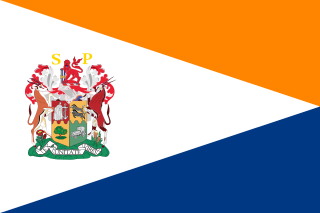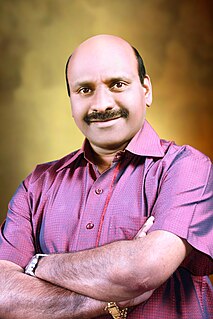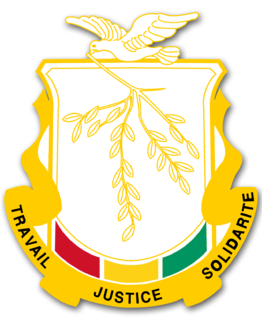The president is a common title for the head of state in most republics. In politics, president is a title given to leaders of republican states.

The Ancient and Accepted Scottish Rite of Freemasonry, commonly known as simply the Scottish Rite, is one of several Rites of Freemasonry. A Rite is a progressive series of degrees conferred by various Masonic organizations or bodies, each of which operates under the control of its own central authority. In the Scottish Rite the central authority is called a Supreme Council.

The State President of the Republic of South Africa was the head of state of South Africa from 1961 to 1994. The office was established when the country became a republic in 1961, and Queen Elizabeth II ceased to be monarch of South Africa. The position of Governor-General of South Africa was accordingly abolished. From 1961 to 1984, the post was largely ceremonial. After constitutional reforms enacted in 1983 and taking effect in 1984, the State President became an executive post, and its holder was both head of state and head of government.

David Cobb was a Massachusetts physician, military officer, jurist, and politician who served as a U.S. Congressman for Massachusetts's at-large congressional seat.
Joseph Lyman was a Civil War soldier, lawyer, and judge. In the 1880s, he was a two-term Republican U.S. Representative from Iowa's 9th congressional district in southwestern Iowa.

The departmental councils of France are assemblies of the departments, elected by universal suffrage. Prior to the French departmental elections, 2015 they were called general councils.

Periyasamy Chandrasekaran was a Sri Lankan trade unionist, politician and government minister.

The 2008 San Diego City Council election occurred on November 4, 2008. The primary election was held on June 5, 2008. Four of the eight seats of the San Diego City Council were contested. This was the last election for the odd-numbered districts using the boundaries created by the 2000 Redistricting Committee. No incumbent council members were eligible to run for reelection due to term limits.

The Council of Pisa was a controversial ecumenical council of the Catholic Church held in 1409. It attempted to end the Western Schism by deposing Benedict XIII (Avignon) and Gregory XII (Rome) for schism and manifest heresy. The College of Cardinals, composed of members of both the Avignon Obedience and the Roman Obedience, who were recognized by each other and by the Council, then elected a third papal claimant, Alexander V, who lived only a few months. He was succeeded by John XXIII.
Gloria S. Butler is a Senate Democrat in the 152nd Georgia General Assembly from Stone Mountain, Georgia. Butler was first elected Senator in the 1998 general election and serves Georgia's 55th district—a constituency comprised in DeKalb county.

George Edmund de Silva was a Ceylonese lawyer and politician. He was the first Cabinet Minister of Industries, Industrial Research and Fisheries in independent Sri Lanka (1947–1948), a Member of Parliament and State Council.

Elections to the General Council were held in French Dahomey in December 1946 and 5 January 1947. The result was a victory for the Dahomeyan Progressive Union, which won 20 of the 30 seats.

Mohamed Ehuttar Hadjiar Maharoof was a Sri Lankan politician and Member of Parliament.

General Council elections were held in Mauritania in December 1946; a second round on 5 January was not required as all seats were filled in the first round of voting. The Socialist and Republican Union emerged as the largest party, winning 16 of the 20 seats.

General Council elections were held in Niger on 15 December 1946, with a second round of voting on 5 January 1947. The General Council had been established by decree on 25 October 1946.

General Council elections were held in Guinea in December 1946 and 5 January 1947.

Territorial Assembly elections were held in Guinea on 30 March 1952.

General Council elections were held in Senegal in December 1946. The Socialist Republican Union won all 50 seats.

Territorial Assembly elections were held in Senegal on 30 March 1952. The Senegalese Democratic Bloc won 41 of the 50 seats.
Alexander Nicholas de Abrew Abeysinge was a Ceylonese politician.














